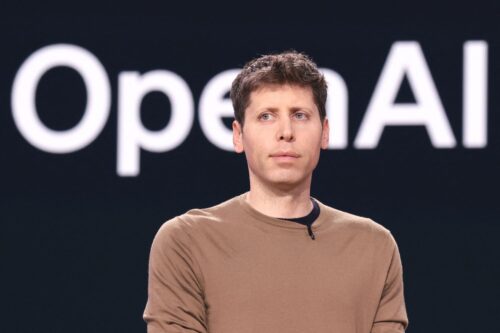
Sam Altman Says Meta Offered $100M Bonuses to Open AI Staff – What’s Really Going On?
Let’s be honest — if someone offered you $100 million to switch jobs, you’d at least think about it, right?
Now imagine that happening not just once, but to multiple people at the same company. That’s exactly what Sam Altman, CEO of OpenAI, claims happened when Meta (yes, the Facebook company) tried to poach his team.
And this isn’t just office gossip — it’s a glimpse into the craziest talent war happening behind the scenes in the world of Artificial Intelligence.
What Exactly Did Sam Altman Say?
In a public interview, Altman revealed that several OpenAI employees were approached by Meta with offers ranging between $50 million and $100 million — just to leave OpenAI and join Meta’s AI team.
He didn’t hold back:
“Some people were offered $50 million, $100 million to leave.”
This isn’t your average hiring strategy. It’s a bold move, signaling a massive talent war in the AI world.

Why Is Meta Doing This?
Let’s keep it simple.
Meta wants to be a leader in AI — but right now, OpenAI is ahead.
Here’s why Meta is offering such huge bonuses:
- They’re catching up to OpenAI’s progress in tools like ChatGPT.
- They’re building their own large language model called LLaMA.
- Rather than build everything from scratch, they want to hire experts who’ve already done the hard work — from places like OpenAI.
Think of it like this:
Instead of learning how to bake the perfect cake, Meta is trying to hire the chef who already won the baking contest.
Read More: India: The Fastest-Growing Market for Chat GPT and a Rising AI Powerhouse
OpenAI vs Meta: What’s the Real Difference?
Here’s a quick comparison to help you understand how the two companies are approaching AI:
| Feature / Value | OpenAI | Meta (Facebook) |
|---|---|---|
| AI Model | ChatGPT, GPT-4, GPT-4o | LLaMA (LLaMA 3 is the latest) |
| Mission Focus | Safe, aligned, beneficial AI | Open-source, scalable AI |
| Culture | Purpose-driven, close-knit team | Competitive, aggressive scaling |
| Employee Retention | High — most refused huge offers | Trying to hire top talent externally |
| Bonus Offers | Equity, mission, long-term value | Up to $100 million in cash/stock |
OpenAI employees are reportedly staying not just for money — but because they believe in what they’re building and why it matters.
Why Didn’t People Take the $100 Million?
Now here’s the surprising part — most of OpenAI’s team did not accept Meta’s offers.
Why would anyone turn down that kind of money? According to Altman:
- They care more about the mission than just wealth.
- Team loyalty and culture matter.
- They’re already working on some of the most exciting tech in the world.
It’s a rare example of people choosing purpose over paycheck — especially in an industry known for massive compensation.
What This Means for You (Yes, You)
This may sound like a fight between two tech giants, but it actually affects everyone who uses AI tools, including:
- ChatGPT
- AI image or voice generators
- Smart assistants like Siri or Alexa
- Recommendation systems on YouTube or Instagram
Here’s how:
- The speed and safety of AI development depends on the people building it.
- The future of jobs, tools, and innovation will be shaped by who wins this talent war.
- If AI companies prioritize money over responsibility, the risks of AI misuse could rise.
This is not just about bonuses — it’s about the values behind the technology we use every day.
Final Thoughts: The Real Power Is Still People
Sam Altman’s comments reveal something important:
The biggest tech companies in the world are now competing for people, not just products.
And in the AI space, those people are incredibly valuable — not just for their skills, but for their ideas, ethics, and vision of the future.
So next time you use ChatGPT, search Google, or scroll Instagram, remember:
The quality of what you experience isn’t just about the brand —
It’s about the brains behind the machine.